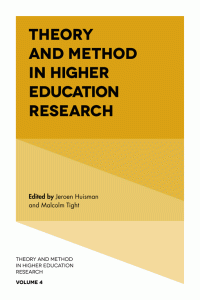
Chapter: Creativity and playfulness in Higher Education research
This chapter argues that higher education research can benefit from fusing existing methodological and theoretical paradigms with more creative, playful and artistic approaches.
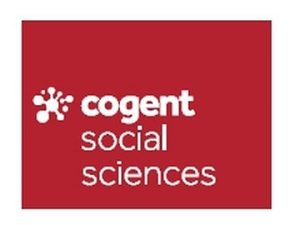
Article: Exploring the lived experience of fibromyalgia
The paper reports on the lived experience of fibromyalgia, which used identity boxes and metaphorical representation to offer a holistic view.
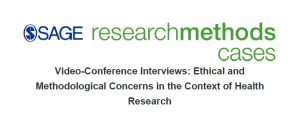
Skype – Video-conference interviews in health research
The paper discusses practical, ethical, and methodological pitfalls and concerns when using Skype as a tool for interviewing.
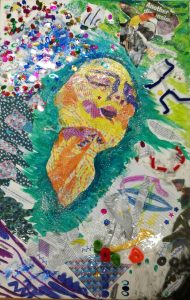
A conversation about creative and art-based methods in research
This entry shows the edited outcome of a video-recorded conversation regarding the use of creative and art-based methods in research.
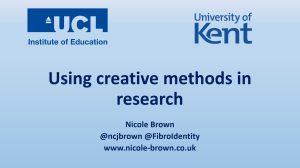
Workshop: Using creative methods in research
In this interactive workshop participants explore creativity within research, experiment with and explore opportunities for creative methods in research.

Getting started with educational research
Getting started with educational research is a short introduction to the research process and offers help with questions and methods.
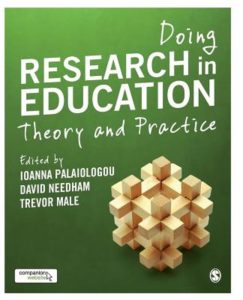
Book review: Doing research in education – Theory and practice
This review is about the book "Doing research in education". A fabulous resource and introduction to doing research in education.
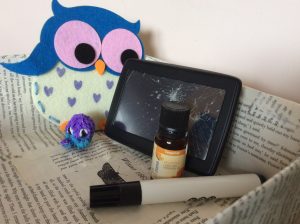
Identity boxes
In this post I describe what identity boxes are, how I developed the idea and why identity boxes can be used in research.
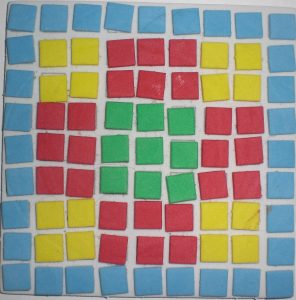
The Mosaic approach according to Clark and Moss
Alison Clark and Peter Moss developed their own way of carrying out research with children – the Mosaic approach. The idea behind the Mosaic approach is that researchers collect data through a wide range of means. These are what Clark and Moss consider "individual tiles". It is then the researcher's task to put these individual pieces together to form one big picture, just like many little tiles are formed into one big mosaic.

Epistemology
Methodology and methods are only part of the story of choosing a research framework. The way you go about collecting and interpreting data is strongly influenced by how you interpret knowledge and truth. This is about the epistemology. In simple terms, epistemology is the theory of knowledge and deals with how knowledge is gathered and from which sources. In research terms your view of the world and of knowledge strongly influences your interpretation of data and therefore your philosophical standpoint should be made clear from the beginning.
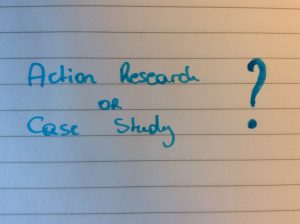
Action research or case study?
When planning for a practice-based enquiry or small-scale study you will most often be confronted with the choice between an action research or case study approach. Here is a simplified exploration to get you started.
Methodology and methods – what are they?
When preparing a practice-based enquiry or research you will need to ask yourself how you will answer your research question or test your hypothesis. The methodology and methods section of a proposal or write-up lays out these ground rules and approaches you take.
Sarah Pink: Doing Sensory Ethnography
Pink's understanding of ethnography is broader than that of a study relating to the culture or society of humans. Really, ethnography in Pink's view is a phenomenological study of life world and in the book she offers ways of accessing this life world through a range of channels. Pink suggests including the human senses at all levels of research. This book offers great justification for a less conventional approach to research; an approach where openness to what happens is paramount.